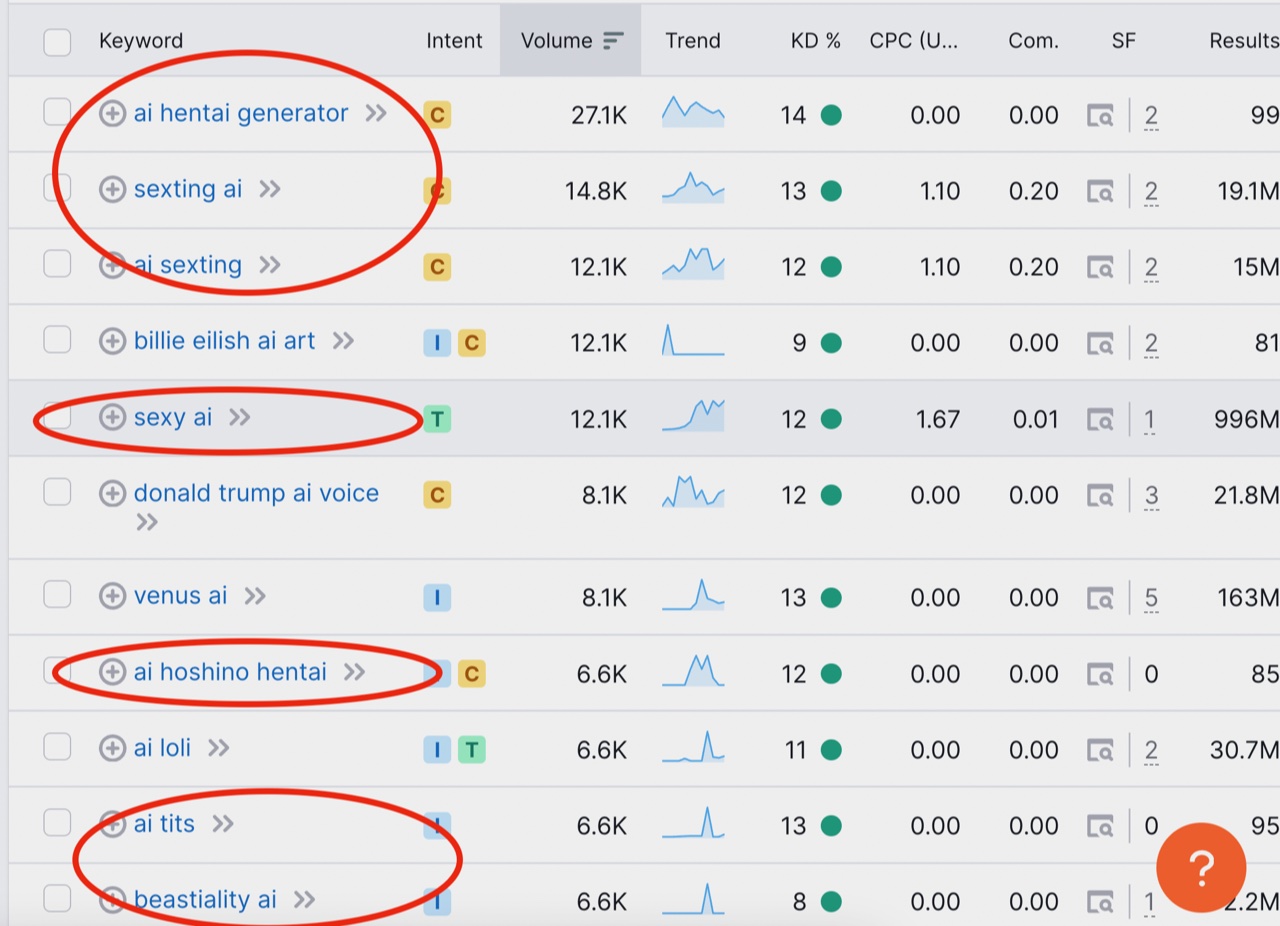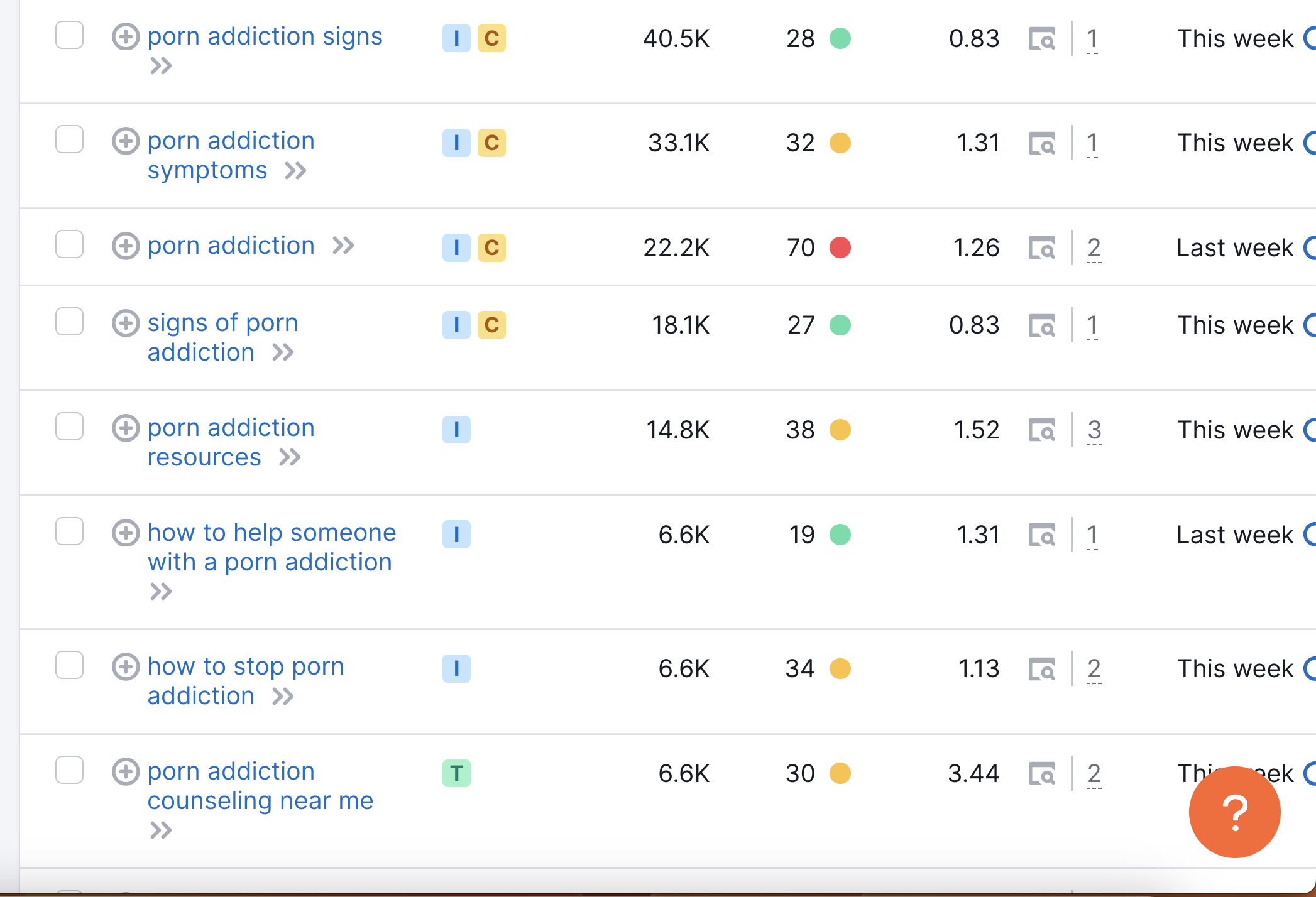It’s not been too long since generative AI tools hit the mainstream; in mid 2023, third party search data shows people began looking for AI pornography generators:

The above is taken from USA data, but the trend is proportionately similar in the UK, adjusting for population size:

To my knowledge such generators do not exist. Deepfake face swap apps certainly do, because that is how deepfakes on YouTube came about. RunWayML is working on a generator for video that produces output based on text and prompt images, which is the next step in AGI video.
Regardless if the technology is there, without doubt the demand for AI porn is here today. And porn, as an industry, has certainly pioneered / been the early adopter for many digital technologies in the past (DVD, payment portals, web streaming, HD/4K video).
I am not particularly interested to write here on whether porn is a good or bad thing. The porn industry puts forward a narrative of empowerment, for women in particular, but some argue the reality is much closer to that of tobacco – a story of addiction and health problems with all the usual negative externalities that follow.
The UK government is likewise concerned and is currently calling a Review for Evidence.
What is interesting to explore for me is whether the rise in demand for AI porn is a symptom of something deeper.
Without going into forensics of why someone would want 'a ‘talk dirty ai’, a ‘nudify ai’ or a ‘beastiality ai’ – I cannot escape the feeling that the rise of porn addiction in general relates to a wider theme of isolation – the modern work (and life) paradigm has left many people isolated, and perhaps these desires are a strange ‘malfunction’ that results.
I cannot help suspect the same for declining fertility rates worldwide. Curiously it is a worldwide phenomena, not just a Western one, apart from in Sub-Saharan Africa.
A new-age sort of book, The More Beautiful World Our Hearts Know Is Possible, makes just this argument. It talks about isolation through an interesting lens – relating a lot of ‘odd’ phenomena in contemporary Western society to the system people inhabit – one that separates them from their true state, one of a closer connection to nature and people.
Einsenstein suggests that the ‘system’ we have built up, particularly the abstraction of money, has resulted in a never-ending cascade of externalities that we are always playing catch-up with. Here’s a few: human health, depression, gross inequality, loneliness, addictions, pretty much any other self-destructive behaviour.
Usually our remedies are designed to work quickly, so we can resume playing the game – a pill for depression, surgery for weight loss, CBT for mental health problems – rather than holistically mapped out and looking at the wider picture. Coffee instead of rest is the dominant philosophy in time-poor environments.
While I do not agree fully with Eisenstein’s underlying assumptions about human behaviour, he certainly hits the mark on many contemporary problems that are evident, and the current topic comes to mind.

Search demand for pornography addiction
One can imagine the porn industry adopting a narrative over time that AI generators are overall a good thing, for one would no longer need to hire actors and actresses, bypassing the health problems (sexual and mental) that are associated with the industry (including some prominent suicides). These are discussed in Louise Perry’s book ‘The Case Against the Sexual Revolution’ with some interesting case studies of famed, ostensibly ‘empowered’ porn actresses who, once having left the industry, change their tune and say it was destroying them.
In the short term, a more predictable narrative from ‘Big Porn’ is that these generators are taking jobs from legitimate actors who, like all of us, need money to live. Meanwhile the industry may get disrupted by newer players who are savvy to deploy AI video tools at scale, play the SEO game, and get users on their AI porn tools.
I am not sure there are many people who would be motivated to do this, but there are billions of people on the planet with an internet connection, many of whom live in poverty, and who would do quite well for themselves if they went for it. If the new owner of PornHub can be (apparently) a practising rabbi, I am sure there will be those who are hungrier to escape poverty who will run with it. Entrepreneurs in my experience (being one) are not moral philosophers, nor deep thinkers; they optimise for making money; I think Nicolas Taleb said this in Antifragile.
The idea that we can generate pornography from text input (or image input) has a number of implications:
- one can expect addictions to increase – for people would, in principle, be able to get whatever ‘hit’ they want in the appropriate dose (with stimuli generally needing to get stronger over time for any addiction – be it drugs, alcohol, porn etc);
- a number of hard to predict knock on effects, for us as social beings, in a society capable of being able to take anyone’s photo and instantly ‘pornify’ it (from the school playground bullies, to relationships where sexual expectations are set at norms that reach further and further from what most people are comfortable with?);
- the direction of matters the legal system in many jurisdictions categorise as criminal, such as bestiaility (6.6k people in the US searching for it a month); if one cannot make recourse to the ‘harm principle’ to the victim (say an animal), might we expect this question to surface again and again and in many situations that will not be comfortable (especially children)?
- more philosophically, is it OK that the bodies or embodied beings of real people which were used to train these (hypothetical) porn generation models could soon be forever and ever – re-purposed to fit anyone’s fantasy at will? Is a body just a body, or is there a soul in there too? (this point applies not just to porn though – it is the same with AGI for musicians, or for authors, poets).
Why Is AI Porn Demand The Rise?
One answer is that 1) technology has made it possible in peoples’ minds, and 2) people generally use technology to push boundaries, an allusion to tales from the ancient world – from Prometheus to Icarus – the boundary pushers . But to the deeper question – what is causing this desire – can be answered in different ways, according to one’s underlying worldview:
- Those of an abrahamic religious background would say that original sin is within our hearts and this manifests itself in all sorts of desires that are not good for us, and take us away from God; this analysis works on other levels too (e.g. running a successful porn company where all the ‘whale’ customers are addicted, with all the human harm involved, for profit, is really a form of greed, or distance from God, and so sin works on this level too - everyone is caught by it);
- For a behaviouralist, who see human behaviour as the outcome of genetic programming and environmental conditioning, would say that humans are hard-wired to respond to sexual stimuli and the possibility of these tools, if or when they exist, they will be particularly good at evoking the next response or stimulus that meet (addicted) peoples’ biochemical ‘needs’;
- For those of more of a new-age type worldview, such as Charles Eistenstein (and certainly not an un-compelling analysis) all addictions are the result of isolation and unmet ‘needs’ (this brings to mind Marshall’s Nonviolent Communication); Western society, being based largely around greed and consumerism and all these sorts of critiques of contemporary capitalism, would say we have largely been left as broken, isolated individuals and need to regain a global and communal consciousness to regain control over our lives. There is a lot more subtlety here than what I can give credit to in a short note.
There is no true answer to this question, for it is ultimately one of the philosophical questions. Is there something wrong with humans? Can it be fixed? Is it innate within us, or environmental?
On The Rise Forever?
The world’s population is forecast to become more fundamentally religious over time, not less, because secular populations appear to have the lowest fertility rate. In other words, the mainstream population in the world are having fewer kids on aggregate, while religious groups are less affected by this trend of declining fertility.
Given the fundamental tenet of most (Abrahamic) religions relates to sin and distance from God and restrictions around sexual conduct, while people may still look for it (in the same way that someone who isn’t allowed to drink may still drink), it would not be ‘liberalised’ as the current setup allows. There are no legal or particularly prevalent social taboos applied in contemporary Western society.
Is It a Bad Thing?
I ran this question through a few friends from different professions to get their take on it:
- An artist, says it is too difficult to know.
- An anthropologist researcher says: her experience in anthropology has taught her that labels such as good and bad are not useful ones.
- A musician says they mostly agree with the predictable knock on effects.
Everyone asked was of roughly the same age, reflecting perhaps a more postmodern trend to not want to judge with absolute values.
Disclaimer: I am not an expert in any anthropological field or in human health, and would be keen to hear input some people actively involved in this area – I was a lawyer, consumer rights advocate and moved to software development and entrepreneurship over time. I wrote the above in a lunch break just to share thoughts on the topic.
